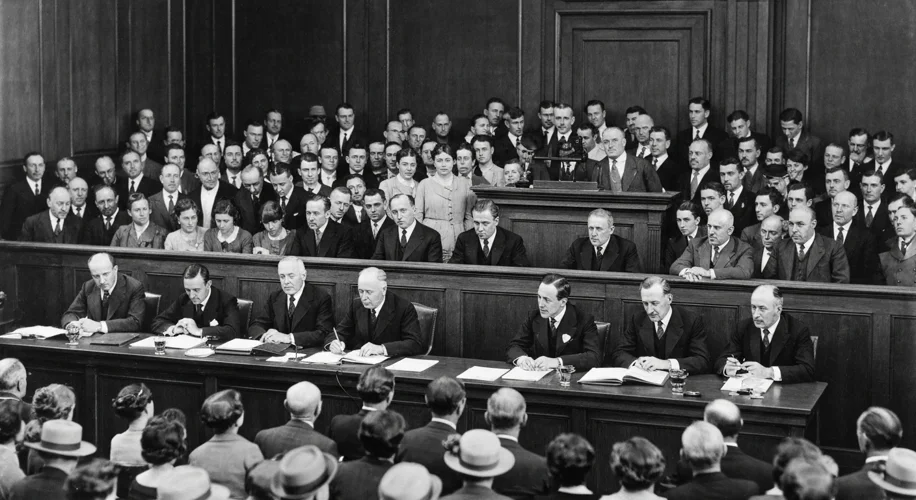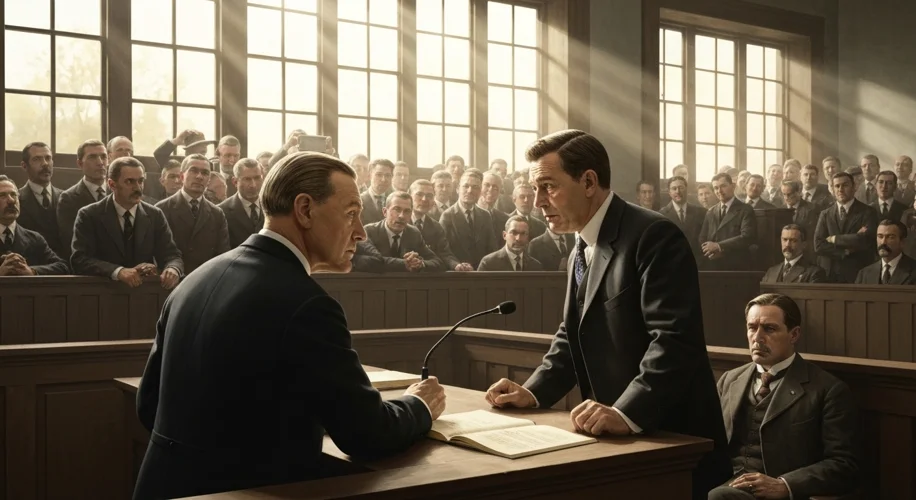The summer of 1925 crackled with a tension that had little to do with the sweltering Tennessee heat. In the small town of Dayton, a drama unfolded that would pit the very foundations of American belief against the rising tide of modern scientific thought. This was the stage for the Scopes Monkey Trial, a legal spectacle that captivated the nation and laid bare the deep cultural fissures of the Roaring Twenties.
At its heart, the trial was about the teaching of evolution in public schools. Tennessee, like several other states, had passed the Butler Act, making it unlawful for any teacher to deny the biblical account of creation while teaching that humans descended from lower forms of life. Enter John T. Scopes, a young, charismatic biology teacher who, with the quiet encouragement of local civic leaders eager for Dayton to gain notoriety, agreed to be the defendant. His intention was not to defy the law, but to test its constitutionality, sparking a national conversation.
The case quickly transcended the dusty courtroom, transforming into a battleground for ideologies. On one side stood William Jennings Bryan, a three-time presidential candidate, a revered orator, and a staunch fundamentalist Christian. He saw the teaching of evolution as a direct assault on faith and morality, a slippery slope that would erode the spiritual bedrock of America. Bryan believed that the literal truth of the Bible was paramount and that public education should uphold these sacred tenets.
Facing him was Clarence Darrow, perhaps the most famous defense attorney in America at the time. A fierce advocate for intellectual freedom and a professed agnostic, Darrow saw the Butler Act as an affront to reason and a dangerous step towards intellectual repression. He argued that denying the scientific consensus on evolution was akin to closing one’s eyes to the observable world. His client, Scopes, became a symbol for a generation grappling with new ideas and the rapid changes brought about by industrialization and scientific discovery.
The courtroom itself became a circus. Reporters from across the country descended upon Dayton, turning the trial into a media frenzy. The heat was so oppressive that proceedings were moved outdoors, amplifying the dramatic confrontations. Bryan, a man accustomed to commanding attention, found himself on the witness stand, subjected to Darrow’s relentless cross-examination about the literal interpretations of the Bible. Darrow famously cornered Bryan on the issue of miracles, asking if he believed the sun had stopped in the sky for Joshua or that Jonah had been swallowed by a whale.

Bryan, despite his oratorical prowess, appeared flustered at times, his unwavering faith challenged by Darrow’s sharp legal mind and public performance. Darrow’s strategy was clear: to expose the perceived irrationality of strict biblical literalism in the face of scientific evidence and to highlight the potential for religious dogma to stifle intellectual inquiry. He aimed to show that if the law was upheld, it could lead to a nation where dissenting scientific or philosophical views were suppressed.
In the end, the verdict was almost secondary. Scopes was found guilty and fined $100. However, on a technicality, the conviction was overturned by the Tennessee Supreme Court. Yet, the real impact was not in the courtroom’s decision but in the national conversation it ignited. The trial brought the conflict between religious fundamentalism and scientific modernism into sharp relief. It highlighted the anxieties of many Americans who felt that traditional values were being threatened by the rapid pace of change, secularization, and new scientific theories like Darwin’s theory of evolution.
The Scopes Trial became a cultural touchstone, symbolizing the broader struggle between tradition and progress. It cemented the idea that science and religion could be seen as opposing forces, a perception that continues to shape debates about education and public policy today. While Darrow may not have won the legal battle, his defense of intellectual freedom resonated, contributing to a gradual shift in public acceptance of evolution, even as fundamentalist opposition remained strong in many communities. The echoes of Dayton, Tennessee, in the summer of 1925, continue to remind us of the enduring tension between faith, reason, and the pursuit of knowledge in the American narrative.

